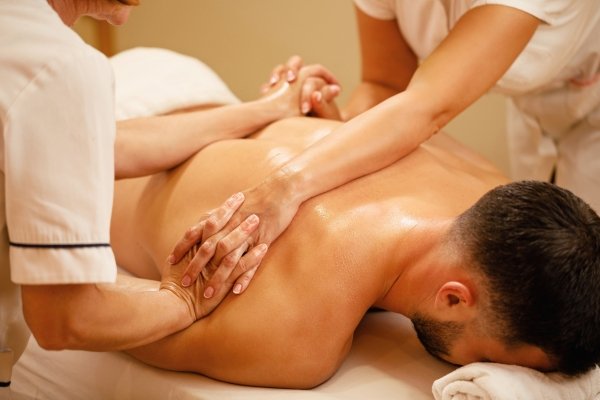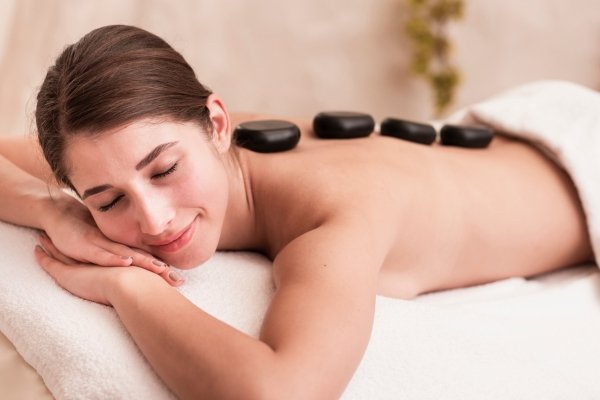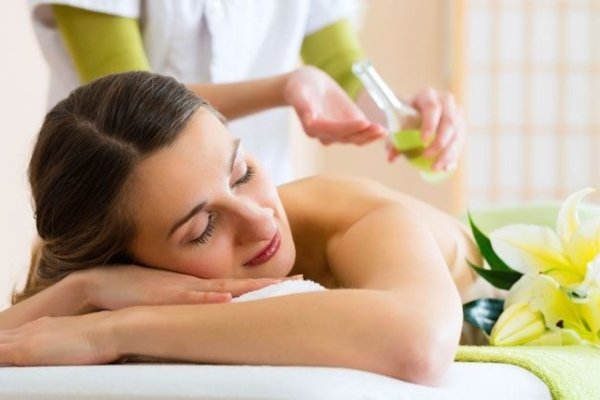Special Therapies
Ayurvedic Special Therapies refer to specific treatment modalities within Ayurveda that are designed to address particular health concerns or conditions. These therapies are often tailored to the individual’s unique constitution (Prakriti) and imbalances (Vikriti) and aim to restore balance to the doshas (Vata, Pitta, Kapha) and promote overall well-being.
1. Swedish Massage

Swedish Massage, originating from Western practices, isn’t a traditional component of Ayurveda. It primarily concentrates on muscular relaxation, easing tension, and enhancing blood circulation through techniques involving long strokes, kneading, friction, tapping, and vibration.
Ayurveda, on the other hand, focuses on holistic well-being, balancing the body’s energies (doshas) through practices like massage, but with a different approach and purpose than Swedish Massage. The closest counterpart in Ayurveda to a relaxing massage might be Abhyanga.
Benefits :
- Muscle Relaxation: Long, gliding strokes and kneading techniques used in Swedish Massage help relax tense muscles, reducing muscle stiffness and soreness.
- Improved Blood Circulation: The massage techniques facilitate better blood flow, enhancing oxygen and nutrient delivery to tissues, which aids in healing and overall body function.
- Stress Reduction: The soothing nature of the massage promotes relaxation, triggering the release of endorphins, reducing stress hormones, and fostering a sense of calmness.
- Enhanced Flexibility: By alleviating muscle tension, Swedish Massage can improve joint mobility and flexibility, making movements easier and more fluid.
- Pain Relief: It can help alleviate chronic pain conditions by reducing muscle tension, promoting relaxation, and potentially easing discomfort.
- Boosted Immune System: Studies suggest that regular massage sessions may contribute to improved immune function, potentially reducing the frequency of illnesses.
2. Hot Stone Massage

Hot Stone Massage is a therapeutic procedure that integrates the use of heated stones, often crafted from smooth volcanic basalt, as an integral component of a massage session. This treatment method, although not rooted in traditional Ayurveda, has gained popularity for its relaxation-inducing properties and potential therapeutic benefits.
Benefits :
- Muscle Relaxation: The gentle warmth from the stones aids in loosening tense muscles, offering relief from stiffness and muscular tension.
- Enhanced Circulation: Heat application fosters improved blood flow and circulation throughout the body, potentially aiding in tissue repair and promoting an overall sense of well-being.
- Stress Alleviation: The comforting warmth combined with the therapeutic touch encourages relaxation, reducing stress levels and cultivating a state of tranquility.
- Pain Management: Hot Stone Massage may contribute to alleviating chronic pain symptoms by soothing muscles and easing discomfort.
- Heightened Relaxation Experience: Beyond physical benefits, it provides a deeply soothing and indulgent experience, fostering mental and emotional relaxation.
- Potential Detoxification Effects: Some practitioners suggest that the application of heat can stimulate detoxification processes, aiding in increased blood circulation and lymphatic drainage.
3. Aroma Therapy

Aromatherapy is a holistic therapeutic approach that utilizes natural plant extracts, mostly aromatic essential oils, to support and enhance mental, emotional, and physical well-being. This practice has gained popularity because to its ability to promote a sense of balance and energy and is based on the tremendous impact that smells may have on our overall health.
Benefits :
- Stress Reduction and Relaxation: Aromatherapy is widely acknowledged for its stress-relieving properties. Scents like lavender, chamomile, or bergamot can promote relaxation, reduce stress levels, and create a calming atmosphere.
- Improved Sleep Quality: Certain essential oils, notably lavender, cedarwood, or chamomile, are believed to enhance sleep quality. Diffusing these oils or incorporating them into bedtime routines may aid in better sleep patterns.
- Mood Enhancement and Emotional Well-being: Aromatherapy can positively impact mood. Citrus scents like orange or lemon and floral aromas such as rose or jasmine are known for their uplifting effects, potentially boosting mood and fostering a more positive mindset.
- Pain Relief and Muscle Relaxation: Some essential oils, like peppermint or eucalyptus, possess analgesic properties. When applied topically through massages or diluted in baths, they may alleviate muscle tension and offer relief from headaches or minor pains.
Enhanced Cognitive Function and Focus: Certain scents, including rosemary, peppermint, or basil, are associated with increased alertness and improved cognitive function. These aromas can potentially aid in concentration and mental clarity.
